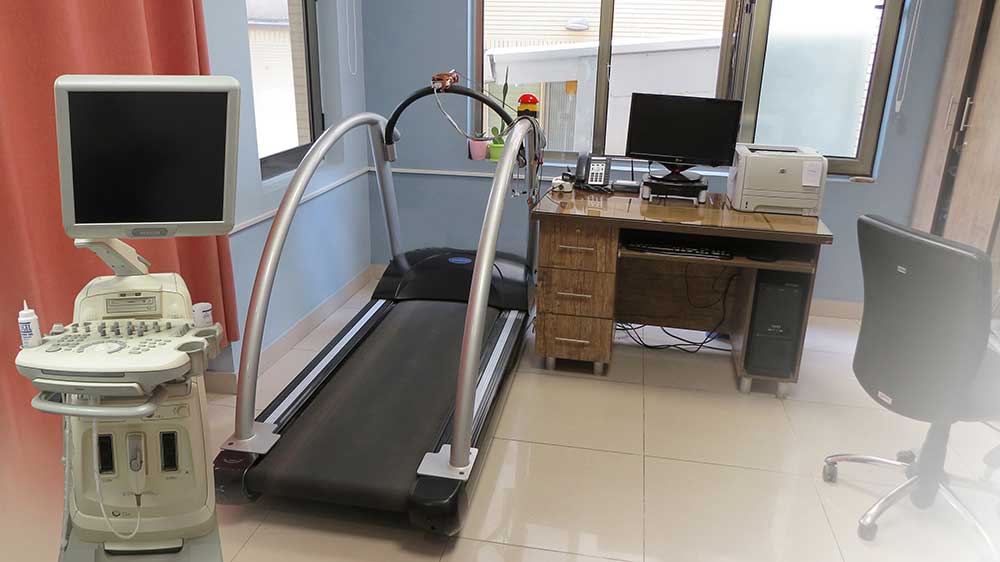
cardiac stress test
Cardiac Exercise Test Behbood Specialized and Sub-Specialized Hospital is located in the Heart Clinic, Nobar Building (formerly Nasr) and is ready to serve esteemed clients by experienced experts.
Stress test
A cardiac stress test (also referred to as a cardiac diagnostic test, cardiopulmonary exercise test, or abbreviated CPX test) is a cardiological test that measures the heart’s ability to respond to external stress in a controlled clinical environment. The stress response is induced by exercise or by intravenous pharmacological stimulation.
Cardiac stress tests compare the coronary circulation while the patient is at rest with the same patient’s circulation during maximum cardiac exertion, showing any abnormal blood flow to the myocardium (heart muscle tissue). The results can be interpreted as a reflection on the general physical condition of the test patient. This test can be used to diagnose coronary artery disease (also known as ischemic heart disease) and assess patient prognosis after a myocardial infarction (heart attack).
If an exercise stress test doesn’t pinpoint the cause of your signs and symptoms, your doctor may recommend a stress test with imaging, such as a nuclear stress test or stress test with an echocardiogram.
Your doctor will tell you how to prepare for your stress test.
- Moderate to severe chest pain
- Severe shortness of breath
- Abnormally high or low blood pressure
- An abnormal heart rhythm
- Dizziness
- Fatigue
- Certain changes in your electrocardiogram
If you can’t exercise during the stress test, you’ll be given a drug through an IV that increases blood flow to your heart. You might feel flushed or short of breath, just as you would if you were exercising. You might get a headache.
You and your doctor will discuss your safe limits for exercise. You may stop the test anytime you’re too uncomfortable. Your doctor will watch your heart activity and stop the test if there are any concerns.
After a stress test
After you stop exercising, you may be asked to stand still for several seconds and then lie down for a period of time with the monitors in place. Your doctor can watch for any problems as your heart rate and breathing return to normal.
When your exercise stress test is complete, you may return to your normal activities unless your doctor tells you otherwise.
Results
If the information gathered during your exercise stress test shows your heart function to be normal, you may not need any further tests.
However, if the results are normal and your symptoms continue to worsen, your doctor might recommend a nuclear stress test or another stress test that includes an echocardiogram before and after exercise or medications to increase blood flow to your heart. These tests are more accurate and provide more information about your heart function, but they are also more expensive.
If your stress test results suggest that you might have coronary artery disease or show an arrhythmia, your doctor will use the information to develop a treatment plan. You may need additional tests, such as a coronary angiogram.
If you had a stress test to help determine treatment for a heart condition, your doctor will use the results to plan or change your treatment.
